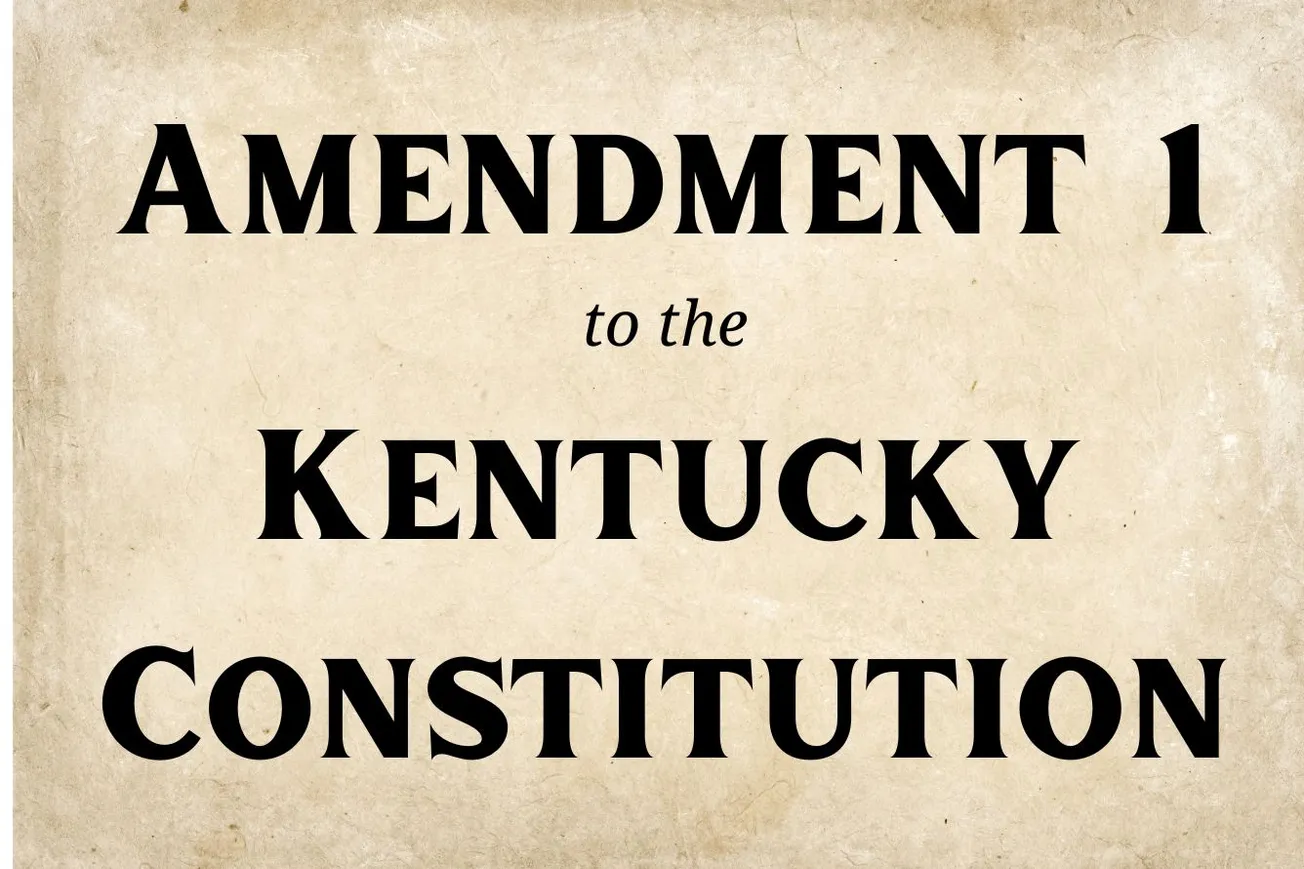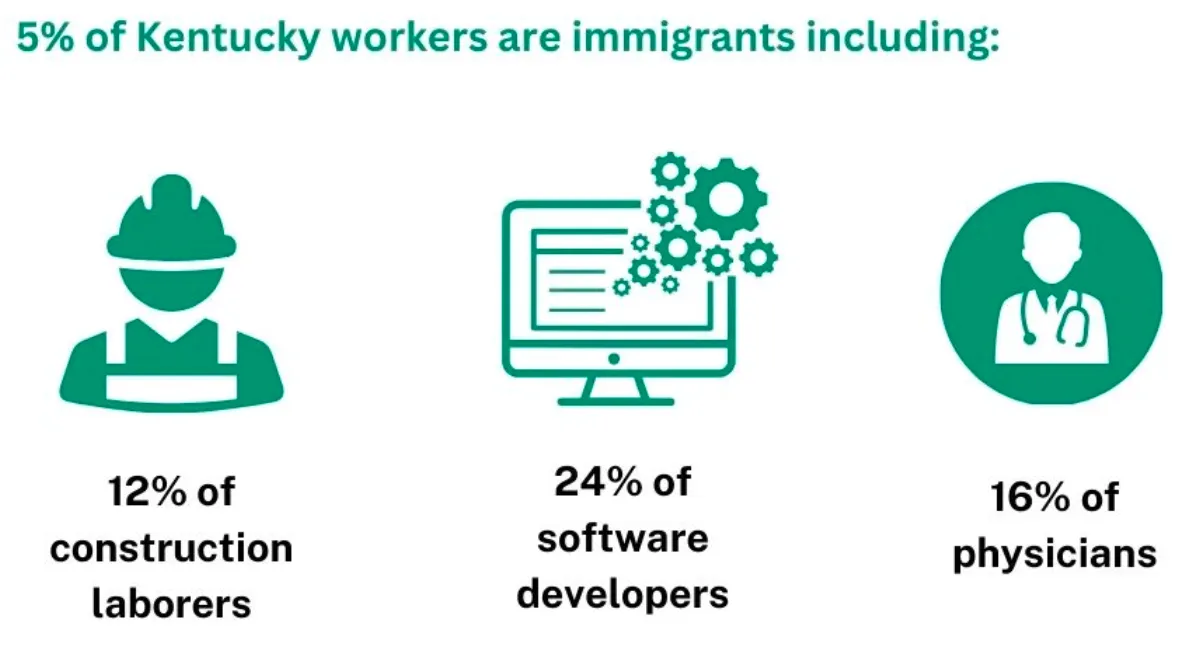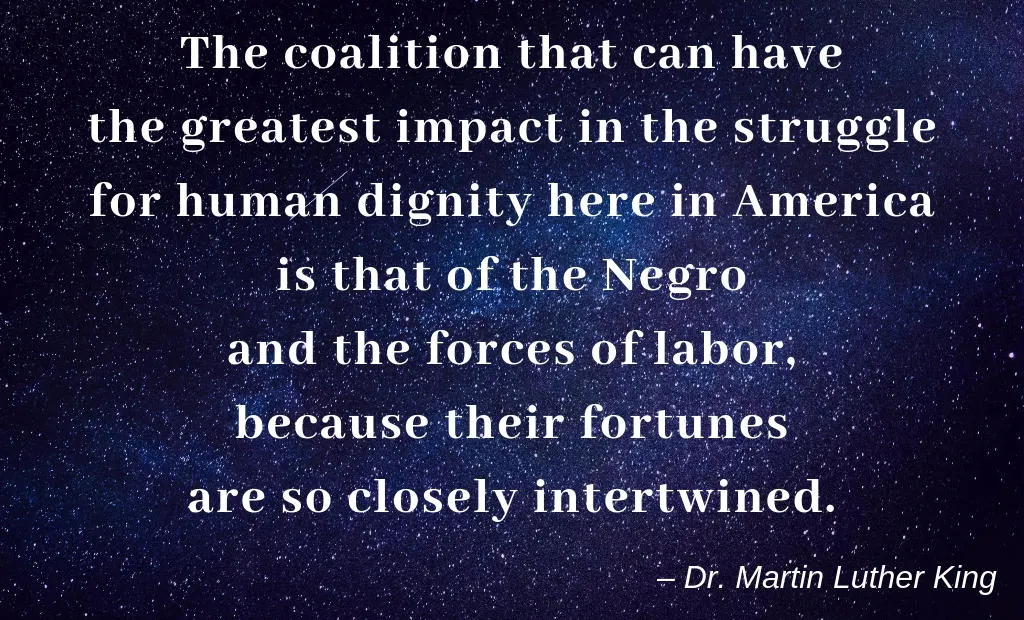Table of Contents
One of the two constitutional amendments Kentucky voters will decide this November would prohibit people who are not citizens of the United States from voting in Kentucky elections — something that already does not happen.
The amendment’s sponsor, state Sen. Jason Howell (R-Murray), called it a “proactive” measure to protect election integrity. Others say the amendment could discourage immigrants who are citizens from exercising their right to vote and that Republicans are using it to fan anti-immigrant fears to turn out their base.
If approved, Amendment 1 would bar noncitizens from voting in Kentucky elections. Election officials, including Republican Secretary of State Michael Adams, told lawmakers this summer that the state already has safeguards in place to keep that from happening.
During the 2024 legislative session, Howell’s bill was one of two proposing to amend the state constitution to specifically prevent noncitizens from voting in Kentucky elections. Rep. Michael Meredith (R-Oakland) introduced the other bill, which gained support in the House.
Similar measures are on the ballot this fall in other states, including Idaho, Iowa, Missouri, North Carolina, Oklahoma, South Carolina and Wisconsin. In Congress, House Republicans have sought to push a provision to bar noncitizens from voting in federal elections, which is already unlawful.
Former President Donald Trump, the GOP nominee for president, has repeatedly falsely claimed that noncitizens voting are costing Republicans elections, a claim refuted by former Kentucky Secretary of State Trey Grayson, a Republican, among many others.
Noncitizens voting in elections across the country is rare. Some state officials in Texas, Ohio, Alabama, and Georgia have flagged some noncitizens who have registered to vote or did vote in an election. Some local governments in California, Maryland, Vermont and the District of Columbia allow noncitizens to vote in their elections, such as for school board or city council.
In an interview with the Lantern, Howell said if a local government in Kentucky allowed noncitizens to vote in a local election, “the administrative complexities associated with that, with our county clerks and secretary of state’s office, would be significant.”
“The reality of the situation — if a governmental entity decided to do this anywhere in the Commonwealth of Kentucky, a huge majority of our citizens would lose their minds over it, and I think rightly so,” the senator said.
Anti-immigrant sentiments
Some have criticized measures like Kentucky’s Amendment 1 as a ploy to churn anti-immigrant sentiments among GOP base voters.
Corey Shapiro, legal director of the American Civil Liberties Union of Kentucky, called it “an attempt to divide and fearmonger more than anything else” as federal law already prohibits noncitizens from voting in federal elections.
Shapiro said the amendment will bring “additional attention to anybody who people think might not be a citizen” and could increase voter suppression among immigrants who have gained citizenship.
“We’re seeing attacks on immigrants all across the country, and this is yet another attack, and it’s unfortunate because people who are registered to vote in Kentucky have probably one of the fewest opportunities to vote compared to other states, and instead of working to actually improve our election laws, make it easier for people to access the ballot, we are spending time and money talking about … made-up problems and casting doubt on the legitimacy of our elections,” Shapiro said.
Kentucky has fewer days of early voting than most states. Voters also have fewer hours to get to the polls on Election Day in Kentucky, where polls are open from 6 a.m. to 6 p.m., than in most states.
Shapiro said giving Kentucky voters “more access to the ballot and more ability to vote … would be a much better use of our politics.”
However, Howell said that he did not think the amendment could spur anti-immigrant sentiments among Kentuckians, but non-citizens voting in elections could.
“Sometimes, it’s very controversial when a particular immigrant community expands within a community,” Howell said. “And I can see anti-immigrant sentiment being stirred up against that particular immigrant community if they were given the opportunity to vote for their mayor, or their school board where their children are educated, or something like that. To me, that has a much greater risk of anti-immigrant backlash than this constitutional amendment ever could.”
Related Articles
— Two reasons the Repubs put a stupid amendment on the ballot
The campaign for Amendment 1 has had a much lower profile than Amendment 2, which would give the General Assembly the ability to fund nonpublic schools if passed. Nine issue committees have registered with the Kentucky Registry of Election Finance to spend dollars to support or oppose Amendment 2, but none have filed to campaign on Amendment 1.
House Democratic Caucus Chair Cherlynn Stevenson of Lexington said during a Kentucky Democratic Party press conference a couple of weeks ago that she does “absolutely believe that (Amendment 1) is probably on the ballot to help drive turnout” for the nonpublic schools amendment as voters who will support Amendment 1 will be encouraged to vote for Amendment 2.
“It is a solution in search of a problem that doesn’t exist because noncitizens can already not vote,” Stevenson said.
Howell said the amendments are “pretty mutually exclusive” as they deal with separate issues. He said he has not heard people talk about the amendments together.
--30--
Written by McKenna Horsley. Cross-posted from the Kentucky Lantern.








